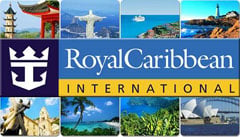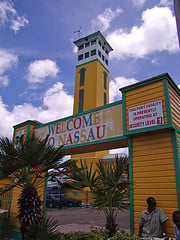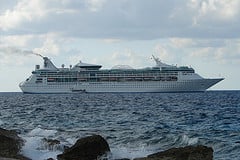Royal Caribbean has partnered with RLJ Companies, Global Building Solutions, LLC and Haiti-based WIN Group, to build two structured insulated panel manufacturing facilities that will provide construction materials for building housing and critical infrastructure in and around key business centers in Haiti. Royal Caribbean, the second largest investor in Haiti, is helping to rebuild a nation devastated by natural disaster.
"While the situation in Haiti is extremely challenging, our team was very encouraged by President Preval's leadership, his commitment to political stability, openness towards the international business community, and desire for further investment," said Johnson. "We had a very constructive visit, and I've no doubt that bringing together international and local businesses with a broad range of expertise will allow this project to help meet the country's crucial housing and infrastructure needs."
Richard Fain, Chairman and CEO of Royal Caribbean hopes that the new plan will further assist in rebuilding Haiti and work in nicely with the initiatives Royal Caribbean has already undertaken to help the area, "Since the devastating earthquake earlier this year, we have been assisting Haiti in its recovery by providing basic life necessities: medical supplies, water, food and education. Royal Caribbean is currently building a model school in Labadee. What better way to help rebuild a country than by contributing to a strong education for its children? We will be acquiring materials from GBS and are using local Haitian labor to build the school. We are pleased to join with The RLJ Companies, GBS, and the WIN Group, in furthering our commitment in Haiti" .


 Michael Bayley, executive vice president, International Royal Caribbean Cruises said Paul would compliment the skills of UK and Ireland general manager Jo Rzymowska, and the pair would be a “successful force” in the industry.
Michael Bayley, executive vice president, International Royal Caribbean Cruises said Paul would compliment the skills of UK and Ireland general manager Jo Rzymowska, and the pair would be a “successful force” in the industry. Assessing the reasons behind the increase in cruise passenger arrivals, the Ministry of Tourism said: "Most of the increase by first port of entry to the Bahamas overall came from Royal Caribbean International's Oasis of the Seas. Royal Caribbean's Freedom of the Seas helped to push the increase in cruise arrivals even higher. With the introduction of the Oasis of the Seas and the Freedom of the Seas to the Bahamas itinerary, it increased the number of passengers brought in by Royal Caribbean by 68.3 per cent.
Assessing the reasons behind the increase in cruise passenger arrivals, the Ministry of Tourism said: "Most of the increase by first port of entry to the Bahamas overall came from Royal Caribbean International's Oasis of the Seas. Royal Caribbean's Freedom of the Seas helped to push the increase in cruise arrivals even higher. With the introduction of the Oasis of the Seas and the Freedom of the Seas to the Bahamas itinerary, it increased the number of passengers brought in by Royal Caribbean by 68.3 per cent.